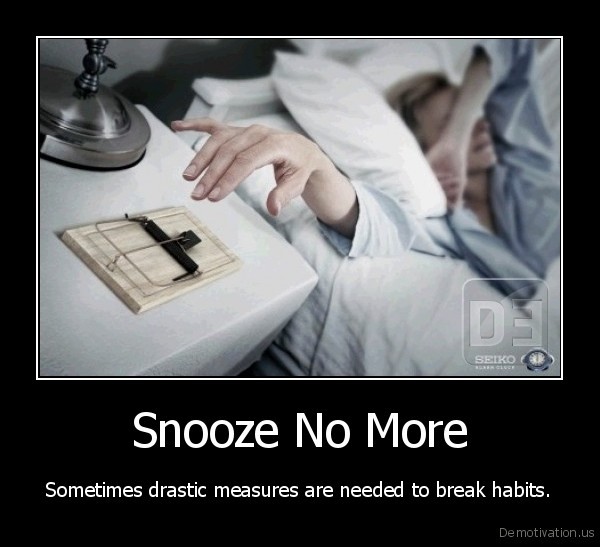Did you set a New Year’s resolution last year? Chances are you did – every second person does, every year -, but you probably don’t even remember what it was by now. Close to 90% of New Years resolutions fail. Why not try something new this time?
Noticing a destructive pattern or the lack of a positive one is a great start. Actually changing your behaviour is a different story entirely though.
Resolutions are all about self control. Whether you want to get rid of a bad habit or take up a new good one, the success of your resolution depends on your ability to control yourself. When temptations arise – to do the bad thing or to not do the good thing -, you draw upon your willpower to resist it.
Have you noticed that it’s easier to resist temptations early in the day when you’re still fresh and full of energy? As the day wears on, your likeliness to succumb to temptation increases. It’s almost as if willpower was an imaginary battery that gets depleted with every act of self control and with decreasing energy levels of your body. The battery may be imaginary, but new scientific results indicate that the analogy is certainly appropriate:
“Acts of self-control deplete relatively large amounts of glucose. Self-control failures are more likely when glucose is low or cannot be mobilized effectively to the brain (i.e., when insulin is low or insensitive).”
On the flip side, restored energy levels lead to improved self control and resisting impulsivity across a large array of behaviours, from quitting smoking to domestic violence.
While energy levels play an important role, they are not the only factor. How much cognitive load you carry also influences your willpower to a large degree. A Stanford experiment, in which a group of people were requested to remember a 2 digit number, while another group a 7 digit number, showed that more cognitive load leads to significantly decreased self control: the group who had to memorise the 7 digit number was twice as likely to go for a chocolate cake versus a fruit salad as the other group. A tiny change of circumstances, and yet massive difference in outcome.
These are just two of the potentially hundreds of factors that influence willpower. The bottom line is that willpower is not really something you can rely on. Whether you give in to temptation or not depends much more on external factors outside your influence than on your willpower.
What are you to do then? How can you possibly change your behaviour if willpower can’t be trusted?
Drum roll…

Image Credit: wanna-joke.com
Habits is the answer.
Habits are patterns of behaviour that we do with little or no conscious awareness.
Habits are the mind’s way of freeing up thinking capacity for stuff that’s important. If habits didn’t exist, if you had to concentrate on every little action you take, complex behaviours, like driving for instance, would not be possible.
While the success of resolutions depends on willpower, habits are independent of it by definition: willpower can only be part of something you are consciously willing to do. Add to that that almost half of all our actions are habit based and you probably won’t need much convincing to believe that the key to changing your behaviour is changing your habits.
Easier said than done, right?
Before we dwell into the details of changing habits, the so called keystone habits are worth a tiny detour.
If you’re anything like me, you’ll have a bunch of habits you want to get rid of and probably even more new ones you want to take up. You can’t do it all at the same time (or can you?). So how do you prioritize?
As it turns out, habits interact and compound with one another. Developing a keystone habit, such as daily exercise for instance, lays the ground for a number of other positive habits, that will work synergically and start a positive, upward spiral. Doing regular exercise gives you a sense of achievement, improves your mood, and increases your potential in all areas.
That’s why – counterintuitive as it may sound – you should take up running before you set out to be more productive, change your diet or quit your facebook addiction.
The compound effect works the other way as well of course. Smoking is a keystone habit that will make you more likely to carry other bad habits such as excess drinking, not exercising and eating junk.
So how do you turn those habits around once you’ve identified them?
I’ve taken a slightly different approach though. I’ve made a spreadsheet with all the habits I want to get rid of and the new ones I want to take up.
Surprisingly, my only unhealthy behaviour I’m aware of is smoking – quite a big one, admittedly. Within productivity, I have news, email/facebook.
For each of these, I’ve created a goal for instance “Don’t smoke.” Or only read news once a day, not first thing in the morning. And only check email and FB twice a day, again not first thing in the morning. As part of my daily reflection, I check myself against to goal and note the result.
The next row is the Why. Reminding myself every time I look at this sheet why I’m doing it is very powerful. For smoking, my real why is “I’m not a smoker”. I’ve never really been a smoker, but I’ve smoked enough to develop a liking, and even a craving for it. I admire smokers, who made the choice: “I know what smoking is doing to my body and I’m going to live with the consequences.” I’m not that guy though.
My why on cutting back on news and email/FB is: in excess, these
- are a waste of time
- burden the mind (increase cognitive load)
- destroy your ability to focus
- make you impulsive and unaware
Then I list the triggers that initiate the habit. It’s vital to remember that habits are patterns of behaviour that we do with little or no conscious awareness, which is why all is needed for a particular negative behaviour to occur is a trigger (and the ability to do it), and it happens pretty much automatically. My triggers for smoking are being around smokers, frustration and boredom.
It’s an amazing exercise to watch yourself as the trigger goes off and be aware in that moment, and write it down. This is how I identified that what triggers my need for reading the news is facing a difficult or unpleasant task, having finished a task and starting a new one. The same goes for checking email/facebook, but a spark of loneliness will do it too.
It’s impossible to unlearn a habit. What you can do is when the trigger goes off, replace the old pattern with a new one.

What works really well for me with news and email for instance is just standing up and moving away from the computer to do something else. Doesn’t matter what, can be a cup of tea, doing the dishes, a short walk, but as long as I break the old pattern and do something new, I win.
I’m surprised how well this works, to be honest. True, I’ve only been doing this for 7 days, but I’ve not smoked once and my craving for the news and email is totally gone already. I only had to make a conscious effort in the first few days, now I don’t even think about.
Positive habits that you want to take up work much in the same way, you need a goal, a why and triggers.
Like keystone habits, morning routines have tremendous power. Have a shitty morning, and the rest of your day will likely follow suit. Get into a good mood, listen to music, have a laugh, get inspired in the morning and you’ve prepared the ground for a glorious day.
That’s why I’m trying to develop a morning routine that involves waking up early (well, 7 am), a bit of mediation, good breakfast, music, reading and writing, followed by exercise.
The challenge so far has been setting up the triggers. It’s easy to find one for waking up, less so for going to sleep. Listening to a certain kind of music or a particular playlist definitely helps with almost any habit. However, once these habits come together forming a routine, you don’t really need triggers for each one individually. You just run the routine.
The second bunch of new habits I’m taking up is to do with reflection. Do you sometimes feel that time just flies by? And when you’re trying to think back what you’ve done throughout the week, nothing much comes to mind?
If you feel that way, it’s partly because your days are very similar and in retrospect, nothing really stands out, it just feels like one big mash. There are ways to help that too, but right now, my focus is on the other part of the story, reflection. Taking just a little time every day to think about what happened during the day, what you’ve learned, what you’ll need to change etc., and jotting some of these down, will change your perception of the time that’s passed to a great deal. I made looking at my habits part of this daily reflection and I also do a slightly bigger one on Sundays. As a result, I have a pretty good recollection of what I did in the past 7 days and it doesn’t feel like time is just flying by.
Since I included exercise in my morning routine, the only thing left in Health is diet. I’ve mostly internalized the “eat well for six days of the week” idea, have kept my weight stable and only binge on not too unhealthy stuff sometimes. And yet, taking notes of the bad stuff I eat makes me realize there is plenty more room for improvement.
If you’re thinking that tweaking habits at this level of detail takes ages each day, let me quickly say that it really doesn’t. Plus, once you’ve internalized them, you can forget about tracking entirely. Not to mention that the time the improvements free up, will easily make up for the time you spend tracking.
I also know that too many excel sheets may be symptomatic of slowly turning into a control freak, and that if you track too much, there is less space for the actual experience. That’s why I’ve long given up tracking my runs for instance. But habits are such an essential part of who your are, and by not being aware of them, you miss so much of your own life, that, if you are ever going to track one thing, it should be your habits.
I’ve been tracking my habits for 7 days, and I’m planning to stick with it as long as it takes to internalize them. I’m hoping to get some real, lasting changes out of this, but it may turn into a total failure just as easily… Time will tell.
You’re welcome to use my template and adjust it to your specific needs as well as follow my progress day by day. I’ll be reporting back here in 3 weeks from now.
(After posting this, I’ve realized that I’ve managed to write in length about habits without mentioning the word “reward” once. The reason why is probably because although rewards are an important part of internalizing new habits, extrinsic rewards – like giving yourself a piece of chocolate after exercise – will only get you so far. Unless the intrinsic reward of doing the activity is enough to keep you going, nothing else will after a while. That said, do apply extrinsic rewards if that’s what gets you going!)
Leave a Reply